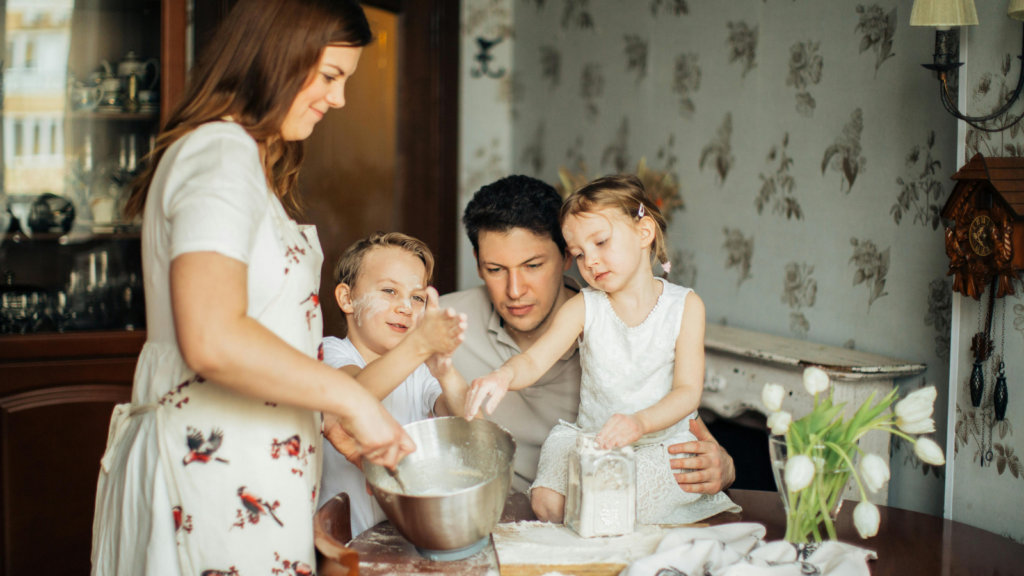In the evolving landscape of modern relationships, a new form of partnership is emerging: the parenting marriage. This non-traditional arrangement, born out of a desire to prioritize children’s needs, is redefining the boundaries of family structure.
A parenting marriage is where two individuals, regardless of their romantic status, choose to raise their children together in a shared household. It’s a commitment to co-parenting, where the focus shifts from marital satisfaction to the welfare of the children.
As society becomes more accepting of diverse family structures, it’s crucial to understand the dynamics of a parenting marriage. This article will delve into its many facets, exploring the benefits and challenges this unique arrangement presents.
Parenting Marriage
Essential components of a parenting marriage encompass various dimensions. The cornerstone of such a setup relies heavily on the maturity, understanding, and mutual respect between the parents, spearheading a healthy environment for children. Examination of authoritative data tells us that these partnerships primarily revolve around sharing responsibilities equally, implementing effective communication, and maintaining a balanced lifestyle. In-depth discussions covering these aspects help comprehend how parenting marriages cast their impacts in a modern societal setup.
The Underlying Concept of Parenting Marriage
Parenting marriage redefines traditional marital roles, focusing on child-centric arrangement. Here, both parents commit to raising their children in a loving and stable environment, irrespective of their emotional connection. These partners separate romantic and parental duties, emphasizing on joint custody and shared responsibilities. For instance, decisions about the child’s education, health, and overall wellbeing involve both parties. It’s crucial to recognize that such partnerships demand open communication, understanding, and mutual respect, despite the dissipation of romantic ties.

The Benefits of a Parenting Marriage
Chief among the benefits of a parenting marriage, child-centric focus yields the optimum environment for a child’s development, both emotionally and intellectually. Elimination of conflict, a common byproduct of traditional divorce or separation, greatly improves a child’s life quality. Secondly, shared parenting responsibilities enhance decision-making, with all verdicts regarding the child’s welfare crafted in mutual consensus, emphasizing the child’s best interest. Lastly, parental unity regardless of the romantic connection translates to well-adjusted, happier children.
Challenges in a Parenting Marriage
Parenting marriages carry intrinsic challenges despite their benefits. Harmonizing individual parenting styles tops the list. Parents must align their disciplinary measures, ensuring consistency; disharmony can confuse and upset children. Adjusting to a non-romantic setup also presents hurdles, as both partners must navigate emotions ranging from loneliness to jealousy. Legal complications might emerge relating to joint-custody and child welfare, demanding expert guidance. Lastly, societal scrutiny and lack of understanding can generate stress. Coping mechanisms, patience, and resilience become vital in tackling these challenges.
Psychological Impact of Parenting Marriage on Children
Children in a parenting marriage may experience their fair share of emotional turbulence. They may, for instance, harbor confusion about their parents’ relationship status. This condition, in some kids, manifests as emotional distress, despite the maintained household stability. Conversely, others absorb better the notion of parental unity for their welfare, resulting in fewer disruptions in their daily routines and less emotional stress. A significant benefit of parenting marriage lies in the minimized exposure of children to high-conflict situations, often leading to better mental health. Furthermore, it provides a sense of security having both parents actively involved in their upbringing. Nevertheless, a potential drawback includes children developing skewed perspectives about romantic relationships.


